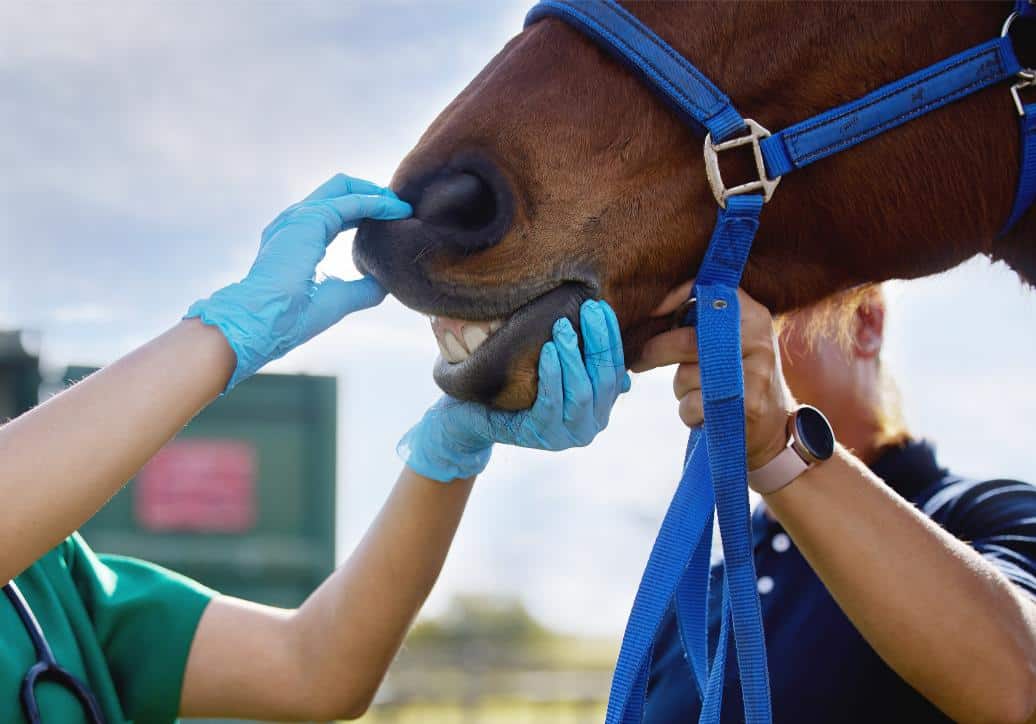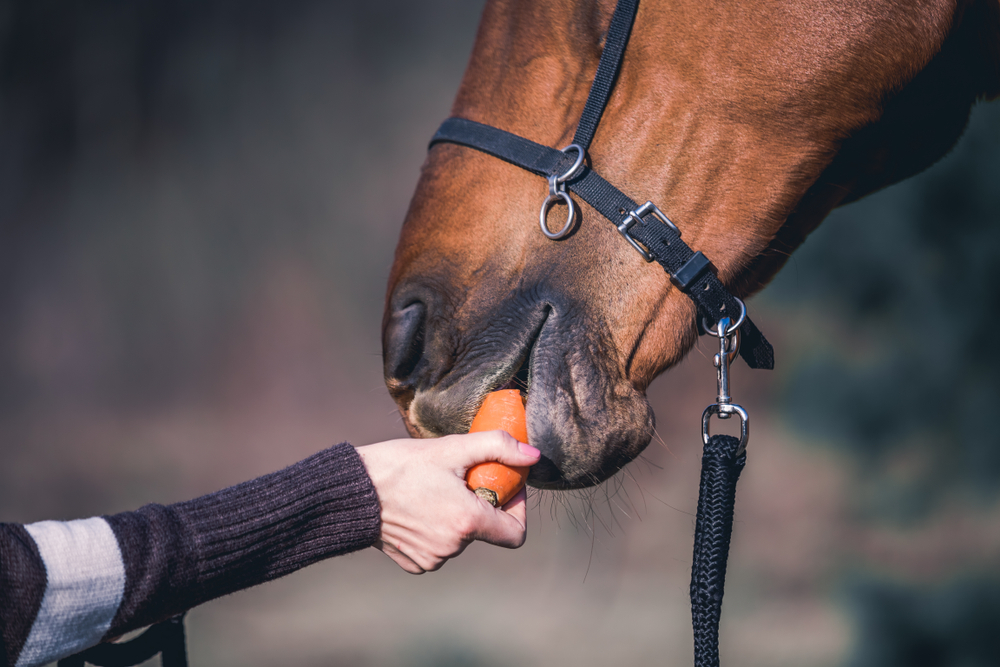Taking care of your horse’s teeth is crucial for their overall health and well-being. Natural dental care for horses involves using methods and treatments that are safe and effective to maintain their dental health. Understanding these practices can improve your horse’s quality of life and enhance their performance.

Understanding Equine Dental Anatomy
To provide natural dental care for horses, it is essential to understand the basic anatomy of a horse’s mouth. Horses have a unique set of teeth that continually grow throughout their lives. This continuous growth helps them grind down fibrous plant material. However, it also means that their teeth require regular maintenance to prevent issues such as sharp edges and uneven wear.
Common Dental Problems in Horses
Horses can suffer from various dental issues, such as hooks, ramps, and wave mouth. These problems can cause pain and discomfort, leading to eating difficulties and behavioral changes. Regular dental check-ups and addressing these issues with natural dental care solutions can prevent more severe complications.
Hooks and Ramps
Hooks occur when the front or back edges of the teeth become too long. Ramps are similar but occur on the chewing surfaces. These can be corrected by smoothing the teeth surfaces naturally.
Wave Mouth
This is an uneven wear pattern that creates a wave-like appearance. It requires careful reshaping to restore a more natural chewing motion.
Natural Techniques for Maintaining Horse Dental Health
There are several natural dental care techniques to maintain your horse’s dental health effectively.
Regular Teeth Floating
Floating is the process of smoothing out the teeth to remove sharp points. Using natural tools and methods can ensure this process is safe and stress-free for the horse. For more detailed information, you can visit floating a horse’s teeth.
Herbal Remedies
Herbs like chamomile and mint can be used to soothe and promote oral health. These herbs can be included in the horse’s diet or used as a rinse to maintain dental hygiene.
Signs Your Horse Needs Dental Attention
Recognizing the signs that your horse may need dental care is crucial. Symptoms include difficulty eating, weight loss, and bad breath. Regular observation and timely intervention can prevent these issues from escalating.
How Often Should Horses Receive Dental Check-Ups?
It is recommended that horses receive dental check-ups at least once a year. However, younger horses, seniors, or those with known dental issues may require more frequent visits. Consistent check-ups can help in early detection and treatment of potential problems.
The Role of Diet in Equine Dental Health
A horse’s diet plays a significant role in their dental health. Feeding them a balanced diet with plenty of roughage helps maintain natural wear on their teeth. Avoiding sugary treats and processed feeds can also prevent dental decay and other issues.
Importance of Roughage
Roughage, like hay and grass, encourages natural chewing and grinding, promoting healthy teeth wear patterns. It is essential for horses to have constant access to quality roughage.
The Benefits of Natural Dental Care for Horses
Using natural dental care techniques ensures that your horse’s dental health is maintained without harmful chemicals or invasive procedures. This approach promotes a stress-free environment and improves overall well-being.
Training and Handling for Dental Care
Proper training and handling are critical when performing dental care on horses. Gentle handling, patience, and positive reinforcement can make the process easier and less stressful for the horse.
Choosing the Right Equine Dental Professional
Selecting a qualified equine dental professional who understands natural dental care methods is crucial. Look for professionals with experience and positive reviews from other horse owners. You can find more information on selecting the right professional at Equine Dentistry Guide.
Preventive Measures for Long-Term Dental Health
Preventive measures such as regular check-ups, proper diet, and monitoring your horse’s behavior can go a long way in maintaining their dental health. Ensuring these practices are in place can prevent long-term issues and improve your horse’s quality of life.
Case Studies: Successful Natural Dental Care
Several case studies demonstrate the effectiveness of natural dental care in horses. These studies show significant improvements in dental health, behavior, and overall well-being when using natural methods.
Conclusion: The Importance of Natural Dental Care
In conclusion, natural dental care for horses is vital for maintaining their health and happiness. By understanding the anatomy, common issues, and natural solutions, horse owners can ensure their equine companions live a comfortable and healthy life.

FAQs
Why is dental care important for horses?
Dental care is crucial because it affects a horse’s ability to eat, perform, and live comfortably. Proper dental care prevents pain, discomfort, and potential health issues.
How can I tell if my horse has dental problems?
Signs of dental problems include difficulty eating, weight loss, and bad breath. Regular check-ups can help detect issues early.
What are the benefits of natural dental care?
Natural dental care is beneficial as it avoids harsh chemicals and invasive procedures, promoting a stress-free environment and overall well-being.
For more in-depth insights into equine dental issues, you may visit equine teeth grinding and do mini horses need dental work for related articles.
This article contains affiliate links. We may earn a commission at no extra cost to you.
